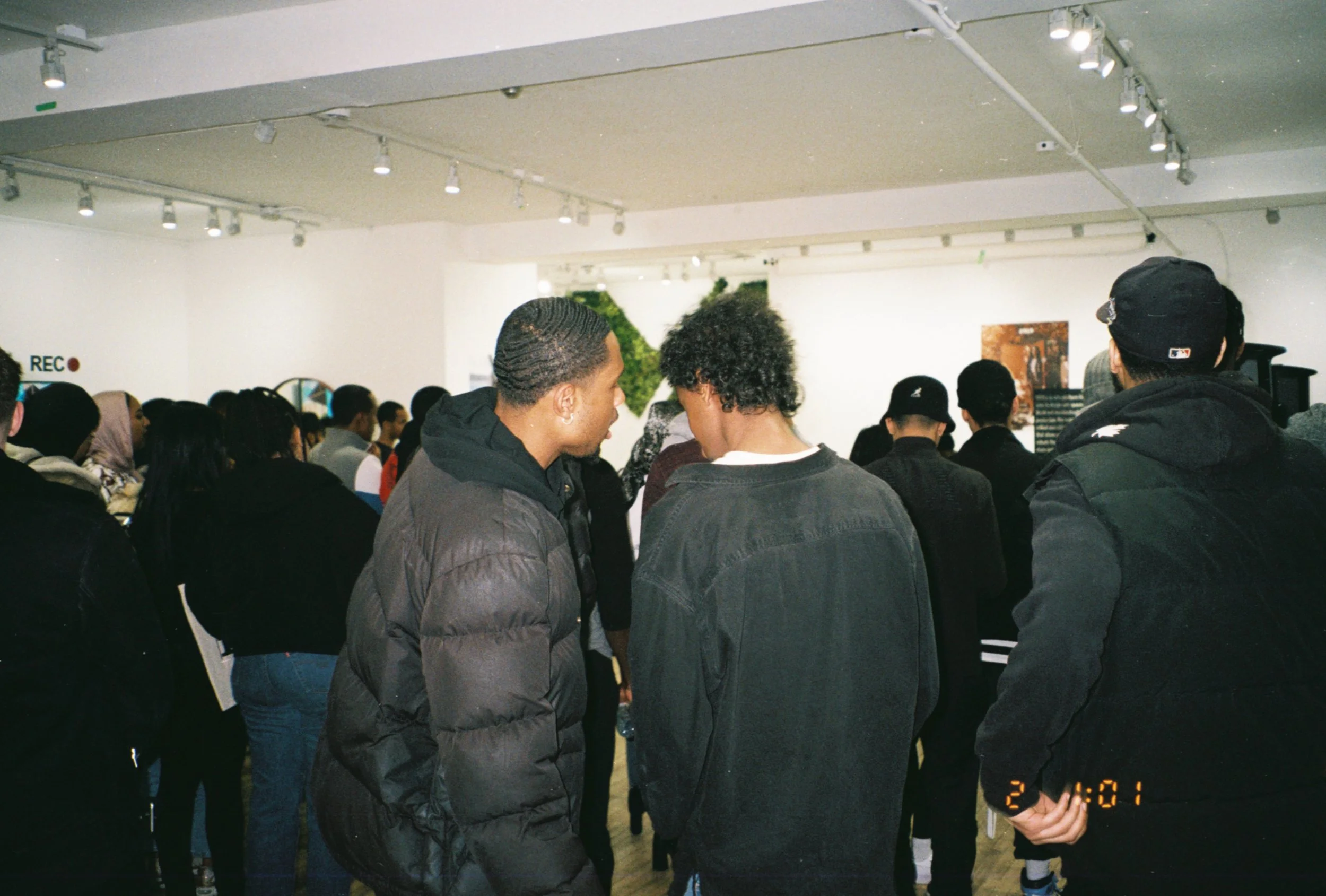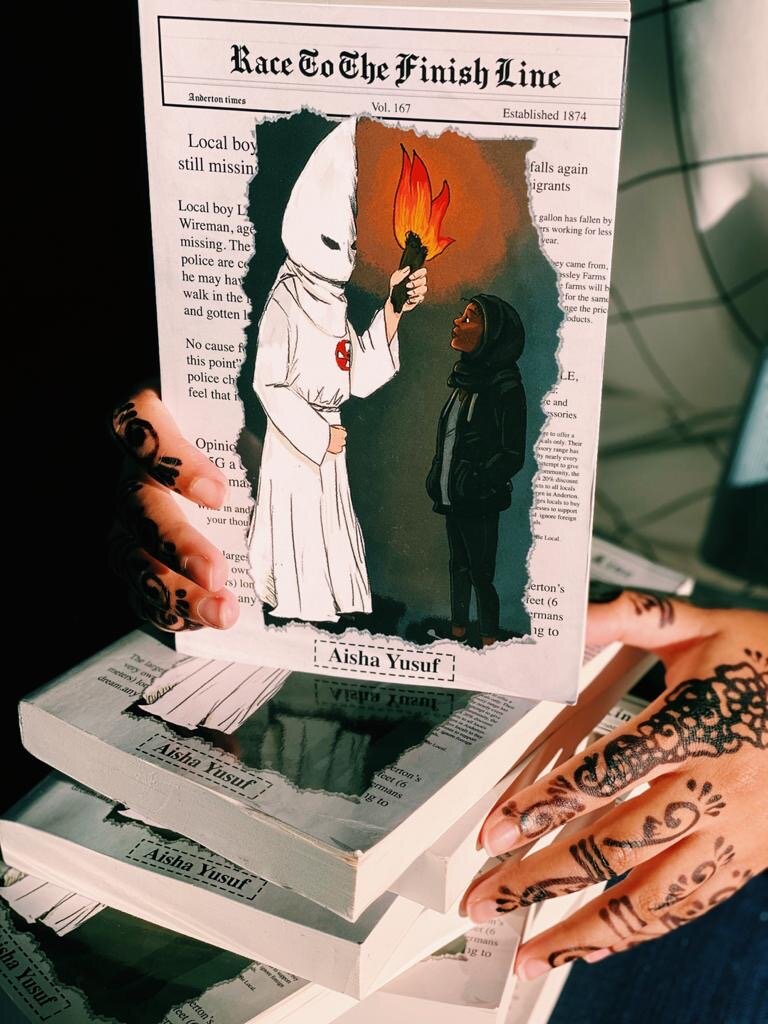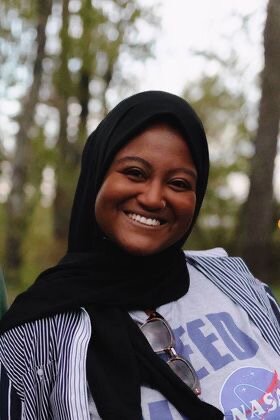Tyra Erskine
Inspired by historical events, movements, activists, and organizers, as well as our upcoming fifth issue, free dreams, this Archival of the Black Radical Tradition, seeks to consolidate and honour Black cultural workers around Canada who commit their art, creativity, and labour to honouring Black historicism and its subsequent impact on social and cultural tradition.
“I don’t ever want to be a symbol of the movement; I just want to be a part of the movement”
Informed and inspired by the events of her life and the complexity of her identity, Tyra Erskine finds herself as one of the many prominent actors in the anti-Black racism movement in Calgary. Proud of her role, she confirms “I do identify as an activist,” although the complexity is akin to her very being. “It’s an interesting elephant of my identity because I identify as a Black activist, but I am also not only Black, I am also part Metis and part Scottish, but I think because of the way I was raised and the connections that I generated in community, I will first and foremost identify as a Black activist.”
The intersections of her Blackness and Indigeneity adds an interesting layer for Tyra’s identity as a multiracial child. While she was not raised by her Black side (her father of Jamaican origin), her self-identification as a Black woman stands strong. Despite this, being raised by her mom (Indigenous and White) and her maternal family perhaps marked Tyra’s first encounters with anti-Black sentiments and racism. “It’s kind of like my blackness and the blackness of my siblings and my dad was highlighted throughout my whole life, so that was something I had to latch onto. When I got out of that situation I intentionally went out to find connections in the Black community and that’s where I felt most at home. But specifically, the most important connections I have had in my life is with the Black Lesbian community, that is where I feel the most safe.”
She maintained that finding this community was surprisingly easy. Much of this had to do with Tyra’s personal commitment to her internal growth and healing. “I just had this beautiful chance meeting my best friend, and because of her my life completely changed. In 2012-2013, when I started getting more comfortable with myself, I was actively finding my people. So, it was easier to bring more people in afterwards.”
Tyra’s experience finding her community speaks to the importance of Black women’s path to healing in connection with one’s anti-racism work. The discourse on anti-racism is often focused and centred on correcting the ills of whiteness – be that white supremacy, white fragility, or any other remnant of whiteness. However, Tyra’s path to finding her community through internal healing is not only an act of self-love but a radical act against racism and oppressive power structures as well. So, it is not surprising that through her journey home to herself, she was able to uplift and support other Black women along the way – filling both her cup and that of those around her.
When referring to the idolization of activists and movement leaders, Tyra shares “we saw how that went with Malcom X, Martin Luther King, and the other people, so I never want to be the singular entity that everything could be traced back to…with a lot of my events, I try to bring people up who haven’t been given the opportunity yet, just to make sure that there are more diverse representation than just me.”
In fact, putting activists and movement builders on a pedestal, and not being critical of the knowledge they are sharing or spewing, is a problem. And we, as a community, at times, fail to recognize that Malcom X, Angela Davis, among many other movement leaders, are shaped and informed by community knowledge and knowledge building. “Someone's awareness cannot be traced to themselves. My life and my view is shaped by everyone around me. And another important view I have with activism… I think everyone should be an activist.”
“What I think we need is a revolution.”
Michael Grondin
Tyra is an activist both in her career/formal employment and on her own terms in her free time. When balancing the two, she explains that “being connected to an organization lets me do a lot of stuff and I really enjoy working on projects there. It helps me to be taken more seriously as an individual as well.” However, for many Black women – and the Black community at large – skepticism of organizations who benefit from talented Black youth persists. In most cases, organizations are dominated by white senior leadership, so to be policed about your anti-racism work by this larger organization – which is often driven by white people – is perhaps one of the most puzzling ironies of anti-racism discourse.
In agreement, she adds that her views on policing “are what a lot of organizations would call extreme. Just like my views that we need to, at minimum defund, and hopefully abolish the police is the goal. And organizations would never take that stance, so it’s kind of awkward to have my personal views but then have organizations that are open to collaborating with police, like for incremental change, whereas what I think we need is a revolution. So, it’s a little difficult.”
If anything, her sentiments are a reminder that the discourse and dialogue surrounding anti-Black racism must be led and directed by Black people. Her experience serves as a reminder that formal institutions, well intentioned organizations, and certainly for-profit corporations must not dictate the movement.
“Even though these conversations are hard, talking to Black people about these issues is how I find I can restore myself.”
Some of the toughest parts of movement building includes the struggle for longevity. Many organizations dedicated to advancing the interests of Black people and addressing anti-Black and anti-Indigenous racism are likely experiencing a current lull following the hype of the summer 2020 movement. While performativity is likely responsible for part of the decreased engagement, fatigue is a familiar sentiment among activists and community members alike. Tyra adds “fatigue for sure. I think too, it’s like always having to think all the time. Some people are going to pay attention to what I am saying and how I word things. People don’t understand the behind the scenes planning on reaching my own inclusivity goals.”
For many, though not all, activism work is not what pays the bills. And so, to have your livelihood dominated by activism work – and often – a full time job, is emblematic of the busyness of the life of an activist committed to community and the movement. Tyra laments “this work is incredible exhausting, don’t get me wrong, but the thing that keeps me going and helps with all this stuff is to build these connections. At the end of the day it’s healing. Even though these conversations are hard, talking to Black people about these issues is how I find I can restore myself.”
“I look at the ancestors and those who have done so much work with pride and love. But I also feel quite sad because this is something they had to do. In all ways, I have such immense respect for the work that everyone has done. But I do also feel sadness as well. I wish that we would get to a place where people don’t have to be activists. That is the goal. Someone I think about quite often is Assata Shakur. I think about the experience that she had and what she had to go through. It's awesome to see how badass she was, but it's also sad she had to be that badass. I just wish she would have had a moment to relax.”
Tyra touches on something key here – the adultification of Black youth as they are forced to develop a level of consciousness at an age that is so young and tender. In many ways, the culture we live in positions Black people to be the sacrifice for society at large (large scale movement organizing in the midst of a pandemic, working the frontlines across all industries, and bearing the brunt of the burdens brought on by the ills of society). So, if we want the capacity to dream freely, I wonder at what cost?
“Dreams have a lot to do with community...How could I not try to help liberate my friends?”
When speaking of what has contributed to her healing and knowledge building journey, she shares a powerful message: “what has been really impactful for me is working on myself. I have been in counselling for 4 to 5 years. I think that every lesson that I learned there can be related to activism work with antiracism. Because it is essentially like if I am increasing my internal capacity to recover from trauma, handle difficult conversations, love myself – that is related to activism and allows me to help increase other people’s capacity to handle difficult conversations about race or racism, increase the ability to love other people, and increase the ability to heal from intergenerational trauma. I feel like my view is that anti-racism is in every aspect of my life.”





